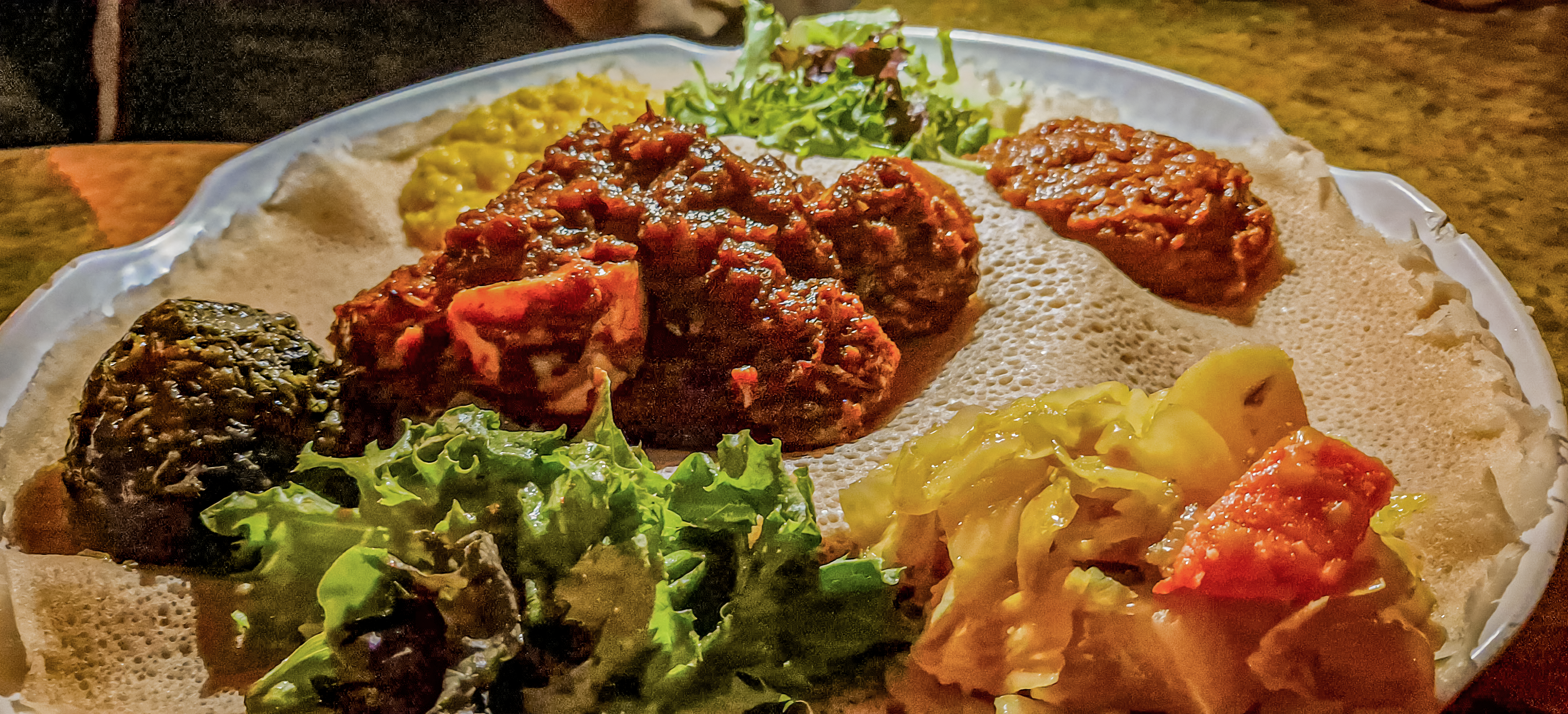Anyone who knows me will tell you that I have a passion for food and feeding people.
This passion comes from my Ashkenazi Israeli mother and my Japanese Canadian father, both of whom are fabulous cooks. Mom always had a snack ready when I came home from school. As soon as I entered the house, I’d immediately be welcomed by a steaming bowl of chicken matzo ball soup, which I would cover in a mountain of shkedei marak (mini yellow soup croutons that all Israeli kids love). Later in the evening when Dad came home from work, we’d sit down together as a family over a bowl of gohan(steamed white rice), Israeli salad, and a main dish like apricot orange chicken, baked salmon, or garlic ginger prawns. On the weekends, Dad would make his famous “cakes in a pan” (pancakes), and on special occasions, he would prepare ribs or stews—using every dish, pan, and utensil in the kitchen, of course. He taught me the importance of umami, adding depth and layers to dishes.
For anything that required an extra little je ne sais quoi, like a salad dressing or spaghetti sauce, my parents would add one of the many staple ingredients found in our multicultural kitchen pantry: shoyu (soy sauce), mirin (Japanese rice wine), maple syrup (100% Canadian), or tahina (sesame paste). Anyone outside of the family who tasted our dishes would say, “Oh this is amazing! What did you put in it?”
My family’s history on both sides is full of trauma, involving both the Holocaust and the Japanese Canadian internment. Luckily, our food traditions survived, and I am grateful to both of my parents for passing these traditions on to me. While they are my main inspirations in the kitchen, I also learned a lot from my Bay Area foodie friends, as well as from folks I met during my post-university world travels, including from an Indian grandmother in Melbourne, Australia and an Arab grandmother with whom I lived in Faradis, Israel. In my experience, the best way to learn how to cook is to find yourself in a kitchen with a grandma who doesn’t speak your language and who has grandchildren who have zero interest in learning how to cook her secret family recipes!
For many years, my family prepared salmon teriyaki for Rosh Hashanah because Mom insisted that we follow the Jewish tradition of having fish. Now that my parents are getting on in years, I’m the one in the kitchen preparing our holiday feasts. My parents do not always love the dishes I prepare because, well, tradition. But that’s okay because I’m making my own traditions now.
Below I present two recipes to make your holidays a bit more “Jewpanese”: our family salmon teriyaki recipe and a miso maple trout recipe that I created with help from a Japanese Canadian friend and a Fijian Muslim friend.
Betayavon, itadakimasu, and shana tova!
Salmon Teriyaki
Ingredients
1 salmon fillet (1½ -2½ lbs)
⅓ cup Japanese soy sauce
2 heaping tbsp dark brown sugar
3 tbsp mirin
1 tbsp honey
1 tbsp minced garlic
1 tbsp minced ginger
2 bay leaves
¼ tsp black pepper
Recipe
- Preheat oven to 400F.
- Place fish (skin up) in long narrow baking dish.
- Mix remaining ingredients in large bowl and pour over fish in baking dish.
- Marinate in fridge for 20 min. Flip over (skin down) at 10 min.
- Bake in sauce at 400F for 20 min.
Chef’s Note: You want there to be sauce in the baking dish, but not too much that the sauce doesn’t caramelize, and not too little that it burns. This entirely depends on the baking dish and your oven.
Miso Maple Steelhead Trout
Ingredients
1 steelhead trout fillet (1½ -2½ lbs)
5 tbsp shiro miso (white, sweet, mellow miso)
3 tbsp 100% Canadian maple syrup
½ tsp grated fresh ginger
½ tsp orange zest, plus half of the fruit’s freshly squeezed juice
¼ tsp black pepper
Recipe
- Preheat oven to 400F. Line a rimmed baking sheet with parchment paper.
- Place fish (skin down) on prepared baking sheet.
- Mix remaining ingredients in bowl.
- With the back of a spoon, slather thick mixture onto fish.
- Bake at 400F for 20 min.
Chef’s Note: The goal is to caramelize the glaze on top. If that isn’t happening, put it under the broiler for a short amount of time.







